Iran Appoints IRGC-Linked Official As Iraq Envoy
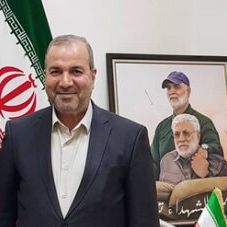
Iran has appointed a man with apparent links to the Islamic Revolutionary Guards Corps (IRGC) intelligence organization as new ambassador to neighboring Iraq.

Iran has appointed a man with apparent links to the Islamic Revolutionary Guards Corps (IRGC) intelligence organization as new ambassador to neighboring Iraq.
Foreign Ministry spokesman announced the appointment of Mohammad Kazem (Hossein) Al-e Sadeq during his weekly press conference on Monday.
The spokesman, Saeed Khatibzadeh, said the ambassador-designate would be inaugurated soon. He did not provide further details.
Little is known about Al-e Sadeq, who has served as a deputy to the incumbent ambassador to Baghdad, Iraj Masjedi, a former senior IRGC commander who assumed office in 2017.
Al-e Sadeq speaks Arabic and is the younger brother of renowned Iraqi-Iranian poet and writer Mohammed Reza Al-e Sadeq -- also known as Mohammed Reza bin Muhammad bin Sadeq al-Najafi. The family seems to have dual Iraq-Iranian roots, which is not uncommon among Shiites. Many Iranians settled in Iraq decades ago, either as clerics or traders.
He is reportedly a former member of the board of director of the Sepas Veterans Association, which is apparently a nongovernmental organization that commemorates IRGC martyrs, particularly those who held positions in the Revolutionary Guards’ intelligence organization.
The moto of the organisation’s Instagram page is “defending Islam does not end with defending the homeland”, suggesting that its members are supporters of IRGC overseas operations.
Masjedi, the outgoing ambassador to Baghdad, has served as a senior member of the IRGC’s extraterritorial Quds Force and as an advisor to Qasem Soleimani, the Quds Force commander who was killed in a US drone strike in Baghdad in January 2020.
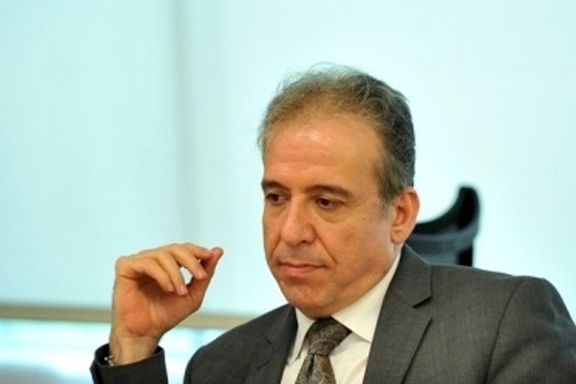
If United States’ sanctions are lifted, Iran’s trade with China could reach $60 billion, the head of the Tehran-Beijing chamber of commerce has said in Tehran.
Majid-Reza Hariri told the Iranian Labour News Agency (ILNA) on Monday that US sanctions are preventing the implementation of a 25-year strategic cooperation agreement inked between Iran and China last year.
Hariri in previous interviews published in Iranian media has implicitly called for a nuclear agreement to be concluded with the West, emphasizing that Iran’s economy cannot emerge from its current crisis while US sanctions are in place, hampering oil exports and banking ties with the world.
The well-known businessman presiding over the Iran-China Chamber of Commerce in Tehran said as along as US sanctions are not removed, Tehran’s economic ties with Beijing cannot improve beyond the current point. He estimated that bilateral trade is not less than $30 billion, which could double in the event of a nuclear agreement with Washington.
Since former US president Donald Trump abandoned the Iran nuclear deal known as JCPOA in 2018, Tehran has been emphasizing an Eastern-oriented foreign policy it dubs as ‘Looking East’, probably in an attempt to show Washington that it has alternatives and can draw closer to Moscow and Beijing.
Hariri explained that although China is Iran’s biggest trade partner, 92 percent of what it buys are oil and minerals, not finished goods. He underlined the fact that global inflation, especially in commodities, is rising and Iran’s trade with China can see an uptick in terms of value but not volume.
In case of other trading partners, such as Iraq and Afghanistan, 75-80 percent of Iran’s exports are raw materials.
Iran in recent months has presented figures saying its exports are increasing. But Hariri implied that part of this rise is simply due to global rise in prices, not more exports.
Hariri explained that preparatory work has begun to work out details of cooperation with China according to the 25-year agreement, but besides the impediment of US sanctions, there are issues of securing credit and financing, which have to be resolved regarding each area of cooperation.
One of the processes in expanding trade ties with Beijing is establishing Iranian representative offices in China, which Hariri said is work in progress. Plans are to open four chamber of commerce branches, but he did not say in which Chinese cities. Also, a permanent exhibit of Iranian goods is planned to be set up in China.
Hariri explained that the importance of trade representation is to boost non-oil exports, preferably manufactured goods to China.
Although the Islamic government in Tehran often tries to highlight what it says is close ties with China, Beijing has established wide-ranging commercial relations with other regional countries, including Saudi Arabia and Israel that are the Islamic Republic of Iran’s adversaries.
Saudi Arabia exports 25 percent of its oil to China and recently announced it is willing to accept the Chinese currency as payment for oil, as relations have cooled with the Biden Administration. Already Saudi Arabia is China’s biggest trade partner in the region.
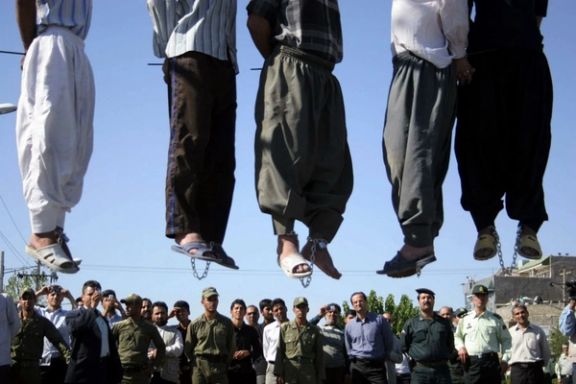
An Iranian official says a person has been sentenced to be executed in public, the third such penalty to be handed down in the country in less than a month.
The prosecutor in the western city of Khorramabad announced that a defendant was sentenced Sunday to be hanged in public for the alleged killing of a police officer in December 2021, according to the U.S.-based Human Rights Activists News Agency (HRANA).
The official, Darioush Shahounvand, didn’t disclose the name of the person sentenced.
In late March, a court in the central province of Esfahan sentenced two other people to be publicly executed for the killing a police officer in November 2021.
Iran had halted public executions for about a year and a half due to Covid-19 restrictions.
According to the Iran Human Rights Organization, at least 111 people have been executed in Iran since the beginning of 2022.
The founder of the Norway-based group, Mahmood Amiry-Moghaddam, has rejected claims by Iranian official that public executions are a “deterrent”, arguing that the practice creates a "cycle of violence" in society and aims to "intimidate the people".
Amnesty International said in its annual review of the death penalty published a year ago that Iran executed at least 246 people in 2020, remaining the world’s second top executioner after China.
Other countries using the death penalty included Egypt, Iraq, and Saudi Arabia, North Korea, Syria and Vietnam.
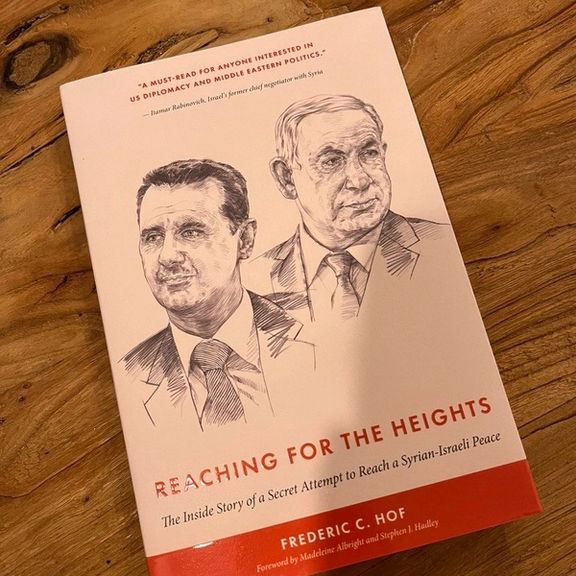
A former US envoy has said Tel Aviv and Damascus were close to reaching a peace deal that would cut Iran out when the Syrian civil war broke out in March 2011.
The Israeli newspaper Haaretz reported on Sunday that the Obama administration was engaged in a covert attempt to mediate between Israel and Syria, a move that was cut short due to the war in Syria.
In a book published earlier in April, former US special envoy to Syria Frederic C. Hof said that the initiative had a promising track, with Syrian President Bashar Assad and then Israeli Prime Minister Benjamin Netanyahu showing willingness to reach a peace agreement during their meetings.
Hof, who worked on Syria-related matters in the US Department of State from 2009 until 2011, said such an accord would have seen Israel leaving the Golan Heights in return for Syria severing ties with Iran and the Lebanese militant group Hezbollah.
The two neighbors have been locked in a war since the establishment of Israel in 1948. Israel captured Golan from Syria in the 1967 Six-Day War and effectively annexed the territory in 1981 in a move not recognized by most of the international community.
Attempts to achieve peace between Israel and Syria have failed mainly due to Damascus’s support for Hezbollah in Lebanon and Hamas militants in the Gaza Strip.
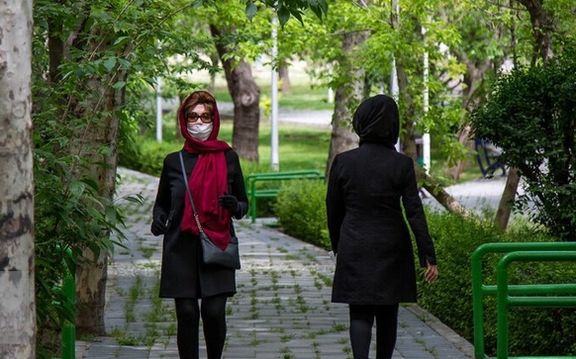
A Tehran City Council member has confirmed that areas in 350 parks and playgrounds in Tehran will be fenced to keep women and their children out of men's sight.
Confirming the plans, Mohammad Aghamiri told Didehban-e Iran website on Saturday that there are "men who are not family members and young [unmarried] men" in parks so it is to women's own benefit to keep men out from where they play with their children. He also claimed that creation of a separate area for women and their children was based on "popular demand".
Those who advocate allocation of a different section of parks and other public areas such as playgrounds to women claim that this will help guard women's privacy and separation from men according to Islamic values.
Limitations for women have always existed since the 1979 Islamic Revolution under the pretext of protecting them, Niki Mahjoub, journalist, told Iran International TV, adding that segregation laws have steadily increased, particularly in the past few years.
Some fear that religious hardliners might be aiming at more segregation in parks and other public places.
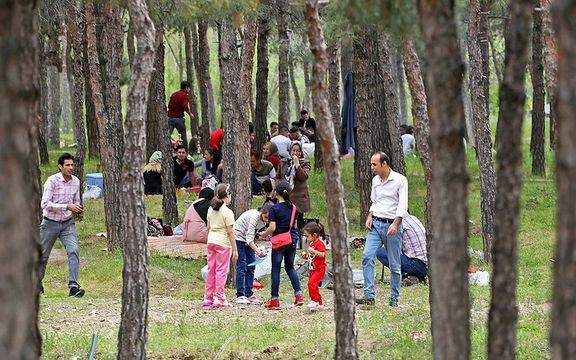
Addressing a Tehran City Council meeting on Sunday, Aghamiri claimed that Didehban-e Iran had misrepresented his remarks and that he had not meant complete segregation of parks but meant only allocation of a special place for women and their children to play together.
He insisted that the plan ensures "women's safety" and giving them peace of mind that their children would not be "abducted". He went on to claim that women are far less likely to abduct children than men.
"There are special parks for children in all countries but now that this is being done in Tehran those who are hostile [to Islamic values] are painting a dark picture and saying parks are going to be segregated," he said.
Aghamiri added that mother and child parks will help make families happier and healthier. "Men are at work during the day. Mothers who have more free time can go to these parks and spend time with their children," he said.
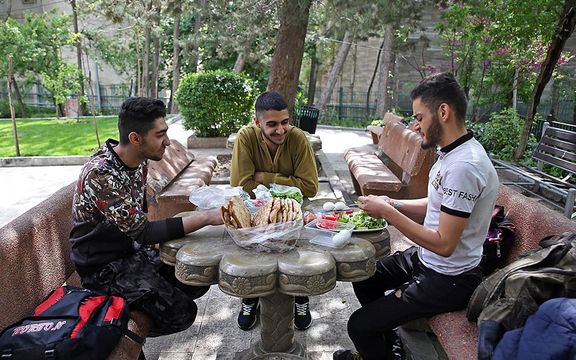
Tehran has over 2,500 large and small parks and neighborhood playgrounds including nine parks that are for women only. Aghamiri said on Sunday that the number of all-female parks is going to increase to forty soon.
The first of all-female parks opened in Tehran was inaugurated by the city's conservative mayor, Mohammad Ghalibaf, in 2008. Some women at the time welcomed the idea because in this park they did not have to wear the compulsory hijab and could dress or exercise as they wished, as even gardeners were female. Others, however, said they feared this was a prelude to greater gender segregation in the city.
Since 2008 all-female parks have also been established in other cities and towns.
On Saturday a video was posted on social media showing tall concrete walls built around a park by the municipality in Bojnord in northern Iran. The mayor of Bojonord has said that the walls have been built not to segregate men and women, but to provide "a safe space" for women.
The Islamic Republic enforces complete segregation of men and women in many public spaces including schools, public transportation, gyms, swimming pools, and beaches. Women are allowed at some athletic events such as volleyball games, in a separate part of the stadium, but unofficially banned from others such as football stadiums, men's wrestling competitions and boxing matches.
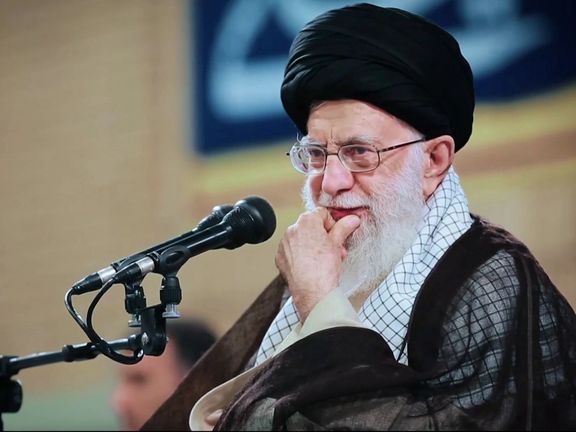
Iran’s Supreme Leader Ali Khamenei has outlined the general policies for a social security system as the country is grappling with a grave economic situation.
In a proclamation sent to the heads of Iran’s three branches of power and the Expediency Council on Sunday, Khamenei on Sunday issued the policies aimed at improving social welfare, removing poverty, and supporting the vulnerable strata of the society in compliance with the first clause of Article 110 of the Iranian Constitution.
He ordered the presidential administration to cooperate with the parliament and the judiciary and mobilize all the relevant entities to provide a comprehensive plan for the implementation of these policies, including legislation, devising regulations and necessary executive measures, within six months.
Khamenei’s directive is a brief and general guideline issuing a series of orders that is meant to expand services to underprivileged people living in urban and rural areas.
In his decree, Khamenei called for establishing a comprehensive, integrated, transparent, efficient and multi-layered social security system, as more reports emerge of deepening poverty amid a 40-percent inflation rate.
The policies include reforming subsidy schemes, promoting job creation, providing all members of the community with access to social services and public resources, and paradoxically offering fertility services to increase the population growth rate.
The directive makes no mention of needed financial resources to expand the social security net. The Islamic Republic has for years provided general energy and food subsidies, but its centrally controlled and closed economy has stifled growth and made it vulnerable to oil export sanctions.